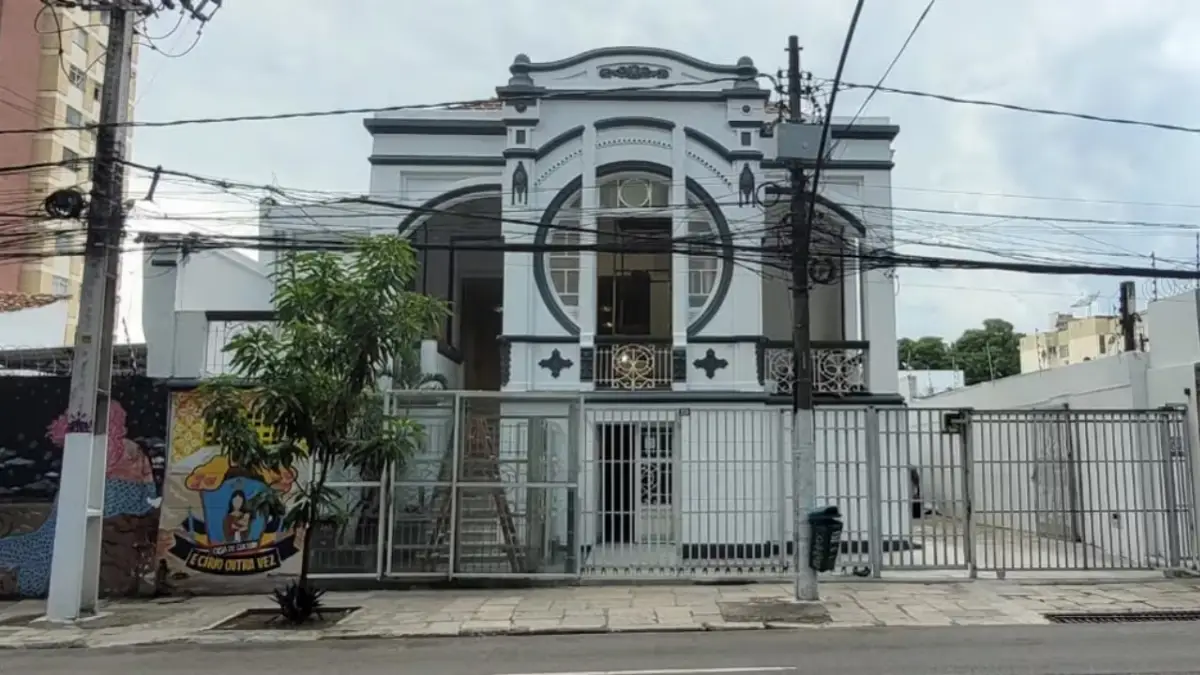
COP30: Bayer renews its commitment to combating climate change
Letter of Intent for a New Form of Rainforest-Based Carbon Credit

During this year's Conference of the Parties (COP) in Brazil, Bayer is renewing its commitment to combating climate change. With "Casa Bayer," the company has created a unique space for exchange and collaboration between politicians, businesses, organizations, and civil society.
The century-old historic building, usually operated by a local NGO as a social education center, has been extensively restored and renovated by Bayer so that it can continue to be used by the people of Belém even after the climate conference. During COP30, the venue will serve as "Bayer House" for over 20 events organized by various organizations, such as the Brazilian and US Chambers of Commerce, the Federation of German Industries (BDI), and the United Nations Population Fund (UNFPA).
"Bayer has a deep and enduring connection with the Brazilian people, our customers, and our employees," said Bill Anderson , Chairman of the Board of Management of Bayer AG. "With COP30 taking place in one of our most important markets, we wanted to find a different and more lasting way to engage, one that would demonstrate our deep concern for the health and prosperity of this country and the planet. That's why we created Casa Bayer, a hub for key stakeholders and partners in Belém. This underscores Bayer's presence in Brazil for over 100 years."
As part of the COP30 Leaders' Summit on November 7, Deutsche Bank, Siemens, and Bayer, along with the governments of the Latin American countries of Honduras and Suriname and the Coalition for Rainforest Nations, signed a Letter of Intent for a new form of rainforest-based carbon credit. Symrise AG has also joined the initiative. The planned development of a new sovereign carbon credit based on Article 6.2 of the Paris Agreement will facilitate, for the first time, the direct purchase by the private sector of certificates from Latin American rainforest countries to support their conservation. The proposed pilot operation would be significant in channeling private financing for the protection of the Amazon rainforest.
Anderson signed the agreement on behalf of Bayer, along with Honduran President Xiomara Castro and several federal ministers from both countries. Given the importance of this agreement, COP30 President André Corrêa do Lago opened the signing ceremony. The initiative complements the efforts of the Tropical Forest Forever Facility, recently launched by the Brazilian government.
Since COP30 is taking place in a large agricultural market, the COP30 presidency team has paid special attention to Brazilian agriculture, including a dedicated exhibition space in the so-called AgriZone at the Brazilian Agricultural Research Corporation Embrapa.
"Over the past 30 years, Brazil has transformed from a net importer of agricultural products to a major agricultural exporter, significantly increasing yields," said Rodrigo Santos , member of the Board of Management of Bayer AG and head of the Crop Science Division, who was present at COP30 in Belém. "This has all been made possible by science and innovation supporting the incredible work of farmers, and I am thrilled that COP30 will highlight the importance of resilient agriculture for the benefit of farmers, society, and our planet."
During the COP30 conference, Bayer will participate in numerous events and discussions highlighting the importance of agricultural innovation in promoting climate change mitigation and adaptation. These innovations include Bayer's recently launched Preceon™ smart corn system, which is more resistant to storms, thus protecting crops, and Bayer's direct-seeded rice, which, compared to transplanted rice, has the potential to reduce water consumption by up to 40% and greenhouse gas emissions by up to 45%.
As an important element of its strategic focus on regenerative agriculture, Bayer is promoting its carbon farming programs worldwide, particularly in Latin America through the Pro Carbono platform. As part of Bayer's broader sustainability strategy, Pro Carbono aims to create a platform of solutions for regenerative agriculture, benefiting both the environment and future generations. Pro Carbono has become the largest carbon reduction program in the region, currently involving approximately 3,000 producers in Brazil and Argentina. Together, they cultivate approximately 2.7 million hectares of soybeans, corn, and cotton. During COP30, the program will reach the 3 million-hectare milestone.
With Pro Carbono, Bayer offers Latin American farmers and companies the right tools, developed in collaboration with Embrapa, to adopt regenerative practices aimed at increasing farmland efficiency and significantly reducing, capturing, and storing carbon emissions. According to the most recent data, the average carbon footprint for soybeans is 50% and for corn, 55%.
EFA News - European Food Agency